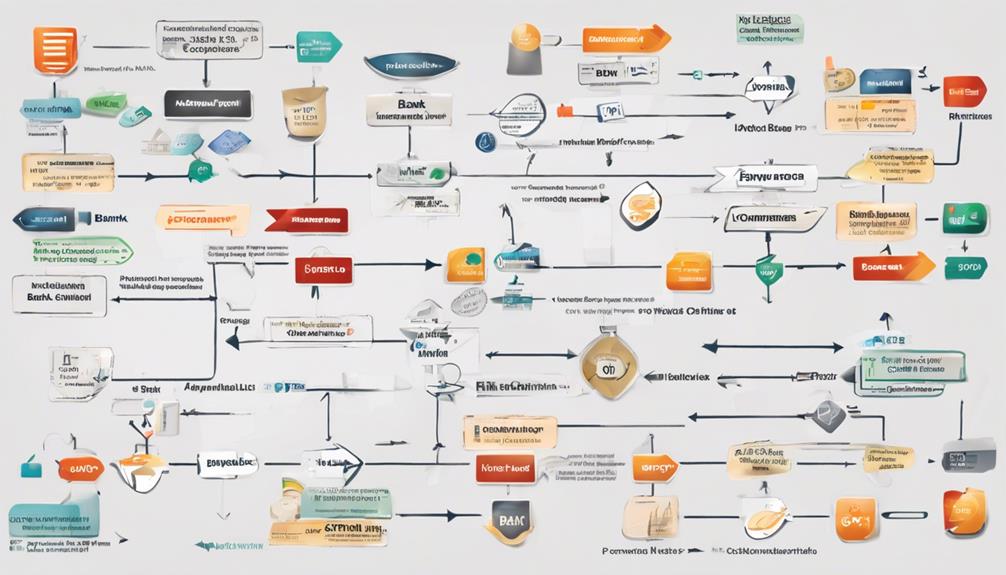Friendly fraud quietly threatens your payment processing, causing hidden costs and operational headaches. When customers dispute charges they’ve received legitimately, you face chargebacks, fees, and potential account suspensions. High dispute volumes damage your reputation and increase processing costs, all while diverting resources from growth. Understanding how friendly fraud impacts your bottom line is vital. If you want to uncover the full scope of this risk and learn strategies to protect your business, keep exploring further.
Key Takeaways
- Friendly fraud leads to chargebacks that incur fees and operational costs regardless of the dispute outcome.
- High chargeback ratios can result in account suspensions, fines, and increased processing fees.
- Merchants must quickly gather and submit evidence to contest illegitimate disputes before deadlines.
- Repeated friendly fraud damages reputation and hampers future payment acceptance.
- Understanding vulnerabilities helps businesses implement prevention strategies to reduce financial and operational risks.

Friendly fraud poses a pivotal risk to merchants by enabling customers to initiate chargebacks after receiving goods or services legitimately. This form of fraud occurs when consumers dispute charges, often claiming they never authorized the transaction or don’t recognize it on their statement, even though they received the product or service. As a merchant, you’re left to prove otherwise, but the chargeback process shifts the burden of proof onto you. You must gather and submit compelling evidence—such as shipping tracking details, access logs, or digital delivery records—within short timeframes. Failing to do so can result in losing the dispute, leading to financial losses and potential penalties. The process of contesting chargebacks often requires quick and thorough responses to meet deadlines. Processing these chargebacks isn’t free; every disputed transaction incurs fees regardless of whether you win or lose the case. Over time, multiple chargebacks can considerably inflate your operating costs. If your chargeback ratio exceeds certain thresholds, your payment processor may flag your account, impose higher transaction fees, or even suspend your ability to accept credit card payments altogether. This not only hampers your revenue but also damages your reputation with payment networks and banks, making future transactions more difficult.
Friendly fraud forces merchants to prove legitimate transactions amid rising chargebacks and financial risks.
Many common causes drive friendly fraud. Customers often forget legitimate purchases, especially if they don’t recognize the charge on their statement. Misunderstandings can also happen when terms, cancellation policies, or product descriptions aren’t clear. Sometimes, stolen card information is used without authorization, but customers report the charges as fraud, adding to the confusion. Impulse buyers who later regret their purchase might dispute charges, falsely claiming they didn’t authorize the transaction. In some cases, consumers intentionally misuse the chargeback process to obtain goods without paying, turning friendly fraud into a deliberate tactic. Understanding the factors behind fraud can help merchants develop strategies to prevent disputes before they happen.
Certain industries are more vulnerable to friendly fraud. Digital services like streaming, gaming credits, or app subscriptions frequently face disputes due to recurring billing confusion or dissatisfaction. High-value electronics are targeted because of their resale potential. Dropshipping and cross-border transactions carry higher risks because of delivery complexities and longer resolution times. Mobile and in-app purchases are also common targets because of the ease of access and lack of physical confirmation, which can make disputes more straightforward for consumers.
The impact on your business can be severe. Lost revenue from refunded transactions, unrecovered goods, and associated fees add up quickly. Dispute ratios that rise too high can lead to fines or higher processing costs. Your reputation may suffer, making it harder to maintain merchant accounts or secure favorable terms with payment processors. Additionally, resources that should focus on growing your business are diverted to managing disputes, handling customer service, and compiling evidence, which drains time and staff capacity. Understanding these risks is essential to protecting your business from the hidden dangers of friendly fraud.
Frequently Asked Questions
How Can Merchants Prevent Friendly Fraud Before It Occurs?
To prevent friendly fraud before it happens, you should implement technology like AI and behavioral analytics to spot suspicious activity early. Clear communication is key—make sure your billing descriptors match your brand and provide transparent purchase info. Maintain fair refund policies, keep thorough transaction records, and train your customer service team to handle disputes proactively. These steps help you catch potential issues and reduce the chances of friendly fraud occurring.
What Legal Options Are Available for Merchants Facing Friendly Fraud Claims?
When facing friendly fraud claims, you have limited legal options but can pursue civil or criminal action if you prove intentional fraud. You might file a lawsuit or report the case to authorities for criminal charges, but these processes are costly and complex. Usually, it’s more practical to dispute chargebacks through payment processors, providing strong evidence to counter wrongful claims, rather than pursuing legal action, which often isn’t cost-effective.
How Does Friendly Fraud Differ From Legitimate Disputed Charges?
They say, “Knowledge is power,” and understanding friendly fraud versus legitimate disputes is essential. Friendly fraud occurs when you receive a chargeback for a genuine purchase, often claiming non-receipt or unauthorized use. Legitimate disputes, however, involve real issues like product defects or errors. The key difference is that friendly fraud exploits the system without real cause, while genuine disputes stem from authentic problems needing resolution.
Are There Specific Industries More Vulnerable to Friendly Fraud?
You’ll find certain industries more vulnerable to friendly fraud, especially e-commerce, travel, hospitality, gaming, and digital goods sectors. These industries rely heavily on card-not-present transactions, which lack physical verification, making them prime targets. Recurring billing services and digital downloads also face higher risks because disputes often stem from customer confusion or service delivery issues. Being aware of these vulnerabilities helps you implement better fraud prevention strategies.
What Signs Indicate a Customer Might Commit Friendly Fraud?
Imagine spotting a pattern where a customer repeatedly disputes charges shortly after receiving their order, especially if they dodge communication or use different payment methods. You notice high-value or recurring purchases from new accounts with inconsistent info, or disputes spike during busy seasons. These signs, like a suspicious trail leading to potential theft, suggest friendly fraud. Stay alert to these behaviors, and you can better protect your transactions from being exploited.
Conclusion
Now that you see how friendly fraud lurks like a wolf in sheep’s clothing, it’s clear you can’t afford to ignore it. Protect your payment processes as if your business depends on it—because it does. Stay vigilant, implement safeguards, and don’t let this hidden threat turn your success into a cautionary tale. Remember, in the battle against friendly fraud, awareness is your best shield—don’t let your guard down when it matters most.









